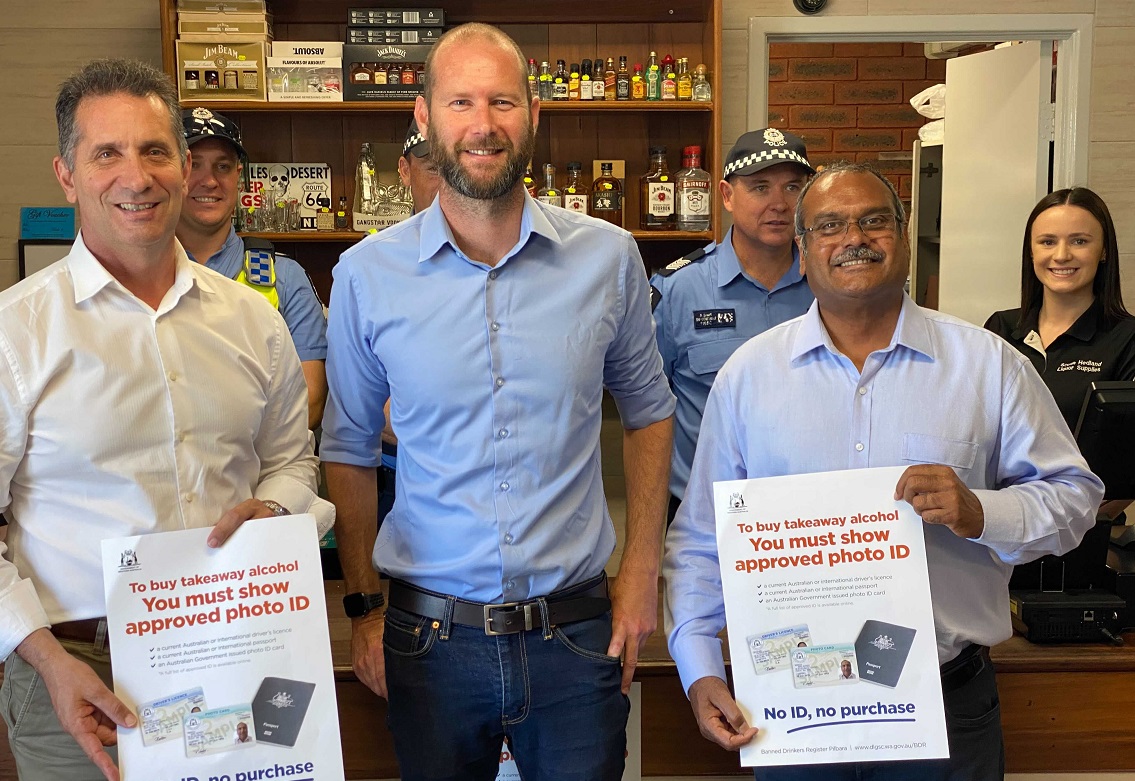A little over 10 years ago, Ches Rafferty was helping review ID scanning technology for his father-in-law Bob Maher’s iconic West Australian venues.
Unsatisfied with the options out there, Rafferty recalls telling his in-laws that the technology wasn’t high calibre, and he could probably build something better. They called him on that and so Rafferty, along with Co-founder Neil Bamber, set to work to create instant identity verification solution company Scantek.
It was for venues like nightclubs and pubs that Scantek technology was originally used for, not only to provide an easy option for security to identify banned patrons, but also to detect sophisticated fake IDs. Scantek went from being used in a range of WA venues, to then be picked up by Melbourne’s Crown Casino and employed by the Queensland Government within its strategy to reduce antisocial and violent behaviour across the state.
From there, Scantek’s reach expanded into multiple other industries, and has even been adopted as the identity verification provider for Telstra stores Australia wide.
Most recently, and coinciding with its 10 year anniversary, Scantek technology has been used to support the Banned Drinkers Register (BDR) trial in WA. It’s already been rolled out for use in the Pilbara trial and locked in for the upcoming Kimberley trial, as well as being ready for a potential expansion into the Goldfields region.
Rafferty said the BDR project illustrates how far Scantek has come, from its early days of operating out the back of a pub, to now being able to support positive projects across the entire on- and off-premise industry that will benefit local communities for the immediate and long term.
“[The BDR] is the most recent project that we’ve really been proud of. It’s a really innovative project which puts our scanning technology into liquor stores in the Pilbara. Our technology scans your ID to make sure that you’re not on a Banned Drinkers Register,” Rafferty told National Liquor News.
“What’s really innovative about that program is that it uses our technology to prevent people at risk of alcohol-related harm from purchasing alcohol and combines it with health outcomes. That is – how do you move people on the Banned Drinkers Register into formal health programs so that they can break this downward abuse spiral and get the help they need.
“It was installed in the Pilbara in December 2020 and from the immediate impacts within just five weeks time the government had announced it would be expanded to the Kimberley.”
Providing the technological functionality of the WA BDR, which has been widely supported by the industry bodies across the state and country, is a huge accomplishment for Scantek. The company has tailored its technology to suit specific needs of projects like the off-premise BDR and on-premise ID scanning, in addition to the multitude of projects in other sectors, and with each adaptation Rafferty said it becomes poised to support even more positive projects in different settings of the industry.
“Right from day one, one of the keys to our success is that we really spent a lot of time listening to customer feedback. I firmly believe it’s why technology is the industry standard across Australia. Even though when we first started these projects we were certainly pushing us to our limits, we always saw it as an opportunity to improve,” Rafferty said.
“We’ve already had some exciting preliminary talks from a couple of states, just very high level about how the WA BDR works and if this is something that they could roll out in their states and what would be involved.
“I think the interest is because whilst the industry is really good at promoting safe, responsible drinking, sadly there’s a small minority of people that cause the majority of the harm… For example, when we looked at the data from venues it was only one in every 2000 entries that resulted in a ban.
“It’s a tragic situation, whilst most people have probably had a night where they wake up and realise that they had a bit too much to drink. However, there’s a big gap between that and the next stage which is the harm and abuse to others and yourself.”
When asked what it means to him and Scantek to be able to contribute to the reduction of such harm, Rafferty said there are two parts. The first is the buzz of hearing anecdotal feedback from venue owners that use Scantek ID scanners, talking about how the technology has drastically reduced the number of alcohol fuelled incidents at their venue. The second is the satisfaction of seeing those results reflected in the hard data, and what that means for communities.
“What we’re seeing, in Queensland, is a significant reduction in head trauma admissions, in ambulance call-outs and in police intervention. There’s a direct benefit to the economy in terms of those costs being reduced, but more importantly, it the difference between a kid going home safely that night versus a family that has a child that’s been killed or has permanent injuries,” Rafferty said.
“That’s really significant and that’s the piece that I’m really looking forward to in the BDR is to see those direct health benefit outcomes. That will give me the biggest sense of achievement.”
Those numbers should start becoming apparent as the BDR trial continues in the Pilbara and begins in the Kimberley in a few months time. And should there be further projects of this kind looked into across the country, Rafferty said Scantek would gladly put up its hand to help.
Header image L-R: Racing and Gambling Minister Paul Papalia, Scantek’s Ches Rafferty and Member for Pilbara Kevin Michel.

